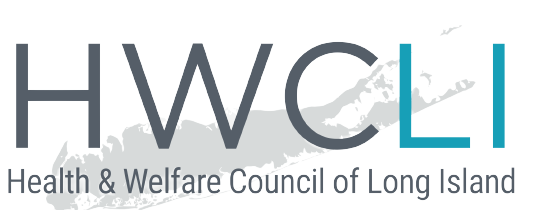Online hiring practices, 2020 Census loom large for LI
Ah, the start of a new year, when people (and companies) consider some major decisions that could improve both prosperity and quality of life (or business).
If entire regions could make New Year’s Resolutions, I’d recommend these two workforce development-related commitments for Long Island: develop and deploy an Island-wide strategy that helps employers clear barriers created by online applications (more skills-based hiring, less “degree inflation”), and leverage the networking capabilities of those same Island employers to help achieve an accurate count for the 2020 U.S. Census.
These two actions will widen Long Island’s talent pipeline, foster new workforce-training resources and otherwise remove barriers to regional employment.
One of the single-biggest barriers to employment is the online hiring process. The Internet and social media make it easy to inform more candidates about open positions and have certainly eased the burden of sorting through résumés; they’ve also had the unintended consequence of creating real employment hurdles.
Online applications rely on employers selecting the criteria that help identify whether a candidate should be considered. Employers often use college-degree requirements to weed out lesser candidates – but many in the HR world will tell you a degree isn’t always required, simply an artificial barrier that often eliminates experienced candidates with the right skills.
Further, many people with college degrees can’t get jobs because the work “requires” specific degree types, or some precise work experience. Military veterans cite similar challenges aligning their service experiences with specific industry requirements.
Skills- and competency-based hiring strategies directly address these challenges, benefitting companies and job seekers both with and without degrees. And with a clearer understanding of specific industry competency requirements, educators and community-based organizations can expand their ability to recruit for larger employers.
Harvard Business School’s Managing the Future of Work project explores this in depth, engaging various partners with the tools needed to bolster their workforces. According to “Dismissed by Degrees,” an article published by project, “reversing degree inflation requires the company to design new tools that value a non-graduate candidate’s work experience, competencies and potential.”
Among the recommended steps for employers: adjust job descriptions to focus on core competencies, explore resources provided by Washington-based Grads of Life and other global partners, and reconsider the entire candidate-vetting process.
Long Island has a robust workforce-development ecosystem, including our educational institutions, various job centers and plenty of community-based organizations. Funding for new programs that develop skills in the emerging workforce will be driven by the 2020 Census.
The census helps with the equitable distribution of federal and state funds for educational programs, community healthcare efforts, new law enforcement officers and highway construction. Funding for public schools and regional workforce-development programs is tied directly to population – not just the number of people, which is critical, but demographic specifics.
Workforce legislation prioritizes “target populations” for training resources. Without an accurate count that reflects how many people actually live on Long Island, where they live and who they are, critical education and workforce-development funding may be reduced.
“The campaign for a Complete Count is motivated by the simple truth that every single one of us counts,” notes Rebecca Sanin, CEO of the Health & Welfare Council of Long Island. “We get one chance every 10 years to ensure that Long Island receives its fair share of funding, resources and representation … the stakes couldn’t be higher.
“If we don’t count our families, we render them invisible for the next 10 years,” Sanin adds, “and we can count on overcrowded classrooms, congested and neglected highways, underfunded hospitals and empty storefronts.”
Businesses are in the perfect position to educate employees on the importance of the census, and even help them complete it. Tens of thousands of Long Islanders already trust their employers with their personal information – and make a mental connection between that information and their livelihood.
To that end, businesses can dedicate a computer terminal in the lunchroom to census instruction and completion, hold information sessions, provide copies of Long Island Counts – the HWCLI and Nassau County Comptroller Office’s July 2019 census preview – and even provide incentives for census participation.
Removing barriers between employers and Long Island’s extraordinary talent pool, and making sure the Island gets its fair share of federal funding via the 2020 Census, couldn’t be more important. In the words of my favorite green guru, “Do or do not, Long Island … there is no try.” The actions we take right now, the priorities we set, will shape the next decade.
Rosalie Drago is Long Island regional director for the Workforce Development Institute, a statewide nonprofit focused on job creation and retention.
Recent Posts
April 12, 2024
U.S. Census: Long Island children under 5 undercounted at rate higher than nationwide
March 8, 2024
February 14, 2024
Categories
- 2020 Census 9
- Coalitions 4
- COVID-19 10
- Direct Services 3
- HEALI 2
- Health Equity 2
- Healthcare Access 5
- HWCLI 67
- LIVOAD 9
- Press Release 2
- Uncategorized 5
- Weekly Digest 3
Join us in creating a future for Long Island in which everyone has an equal opportunity to prosper and thrive.
Join Our Network
Subscribe to Our Newsletter
Copyright ©2024 HWCLI. All Rights Reserved. Designed by FBC
